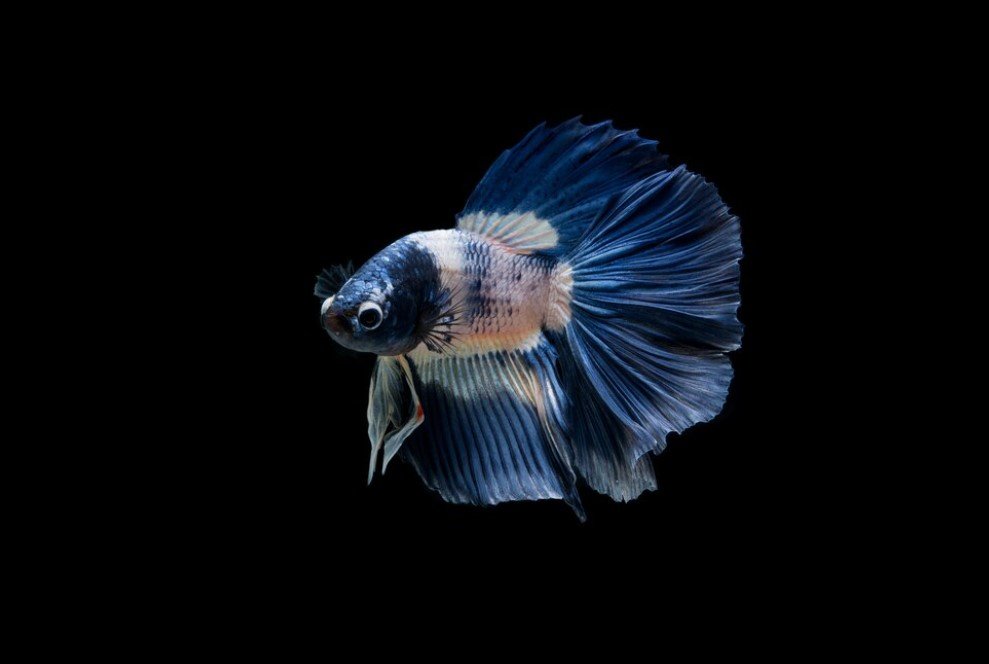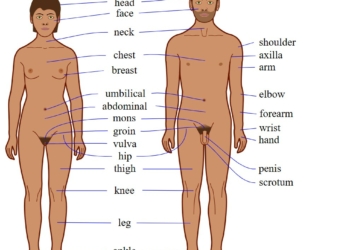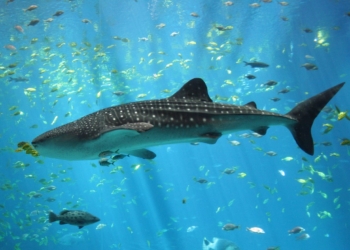Ever wondered how many days a betta fish can survive without food? Whether you’re planning a vacation or simply concerned about your pet’s well-being, understanding this is crucial. Betta fish are hardy creatures, but their survival without food depends on various factors such as age, health, water temperature, and days. In this post, we’ll explore the resilience of these beautiful aquatic pets and provide insights into ensuring their well-being during periods of fasting.
We’ll delve into the typical duration bettas can go without eating and offer practical tips to support their health in such situations. So let’s dive in and unravel the mystery around how long betta fish can survive sans sustenance.

Understanding Betta Fish Biology and Metabolism
Unique Breathing Ability
Betta fish, also known as Siamese fighting fish, belong to the species of labyrinth fish. This unique classification indicates that they possess a special organ called the labyrinth organ. This extraordinary feature allows them to breathe atmospheric oxygen directly from the air at the water’s surface. Unlike other aquatic creatures that rely solely on extracting oxygen from water using their gills, betta fish have this remarkable adaptation that enables them to survive in low-oxygen environments such as stagnant waters or tiny puddles.
Betta fish are not like your average underwater dwellers; they can take in air through their labyrinth organ when necessary. When food becomes scarce or during times of stress, betta fish can utilize this distinctive ability to slow down their metabolism and conserve energy. This evolutionary advantage serves as a survival mechanism for these beautiful creatures, allowing them to endure longer periods without sustenance compared to many other freshwater species.
Adaptive Metabolism
In response to food scarcity, betta fish exhibit a fascinating metabolic adjustment. Their metabolism slows down, enabling them to make do with minimal nourishment for an extended period. This means that when faced with limited access to food sources, these resilient little swimmers can stretch out the time between meals without suffering detrimental effects on their health and well-being.
This adaptive trait is particularly beneficial considering the unpredictable nature of their natural habitat where resources may be sporadic and inconsistent. By slowing down their metabolism during times of scarcity, betta fish demonstrate an impressive ability to adapt and thrive in various environmental conditions—a testament to their resilience as a species.
Factors Affecting Betta Fish Fasting Duration
Temperature Fluctuations
Temperature fluctuations can significantly impact how long a betta fish can survive without food. In colder water, a betta fish’s metabolism slows down, allowing them to endure an extended period without eating. Conversely, warmer temperatures speed up their metabolism, shortening the duration they can go without food. For instance, in cooler water around 70°F (21°C), a healthy betta fish may survive for about two weeks without feeding. However, in warmer water at approximately 80°F (27°C), the fasting duration might be reduced to one week.
Stable temperature conditions are crucial for maintaining a longer fasting period for betta fish. Sudden changes in temperature could lead to increased metabolic rates and energy expenditure, reducing the time they can survive without food.
Age and Health of Betta Fish
The age and overall health of betta fish play critical roles in determining how long they can go without food. Younger and healthier bettas generally have more energy reserves stored within their bodies compared to older or unwell ones. As a result, younger and healthier bettas can withstand an extended period of not being fed before facing severe consequences.
Moreover, if a betta is already weakened due to illness or other health issues, its ability to survive prolonged periods without sustenance will be compromised. In such cases, even minor disruptions in their feeding schedule could have detrimental effects on their well-being.
Stressful Environments
Stressful environments greatly affect a betta fish’s ability to survive without food for an extended time. When exposed to stressful conditions such as overcrowded tanks or aggressive tank mates, the physiological stress response of these fish intensifies. This heightened stress response leads to increased energy consumption and faster depletion of energy reserves within their bodies.
Furthermore, inadequate environmental enrichment or poor water quality also contribute to elevated stress levels among bettas which further diminishes their capacity to endure prolonged fasting periods.
Typical Fasting Thresholds for Betta Fish
Survival Period Without Food
Healthy betta fish can survive without food for approximately 10-14 days. This period may vary depending on the age and overall health of the fish. Younger bettas, for instance, might require more frequent feeding than adult bettas due to their higher metabolic rate.
Bettas are naturally equipped to endure periods of food scarcity in their native habitats. Their ability to withstand extended periods without food is an adaptation that allows them to survive in environments where resources may be limited at times.
Importance of Occasional Fasting
Occasional fasting is actually beneficial for betta fish. Overfeeding can lead to various health issues such as obesity, constipation, and bloating. By allowing your betta fish to fast intermittently, you can help prevent these problems while also mimicking their natural feeding patterns in the wild.
Fasting also gives your betta’s digestive system a chance to rest and reset itself. Just like humans benefit from intermittent fasting, giving your betta short breaks from eating can contribute to better digestion and overall well-being.
Risks of Extended Fasting in Betta Fish
Weakened Immune System
Extended periods without food can weaken a betta fish’s immune system, making it more susceptible to diseases and infections. Without essential nutrients from food, the fish’s body may struggle to maintain its natural defenses against illnesses.
Prolonged fasting leaves betta fish vulnerable to various pathogens and environmental stressors. For instance, common diseases like fin rot or ich can pose a greater threat to a fish that has been fasting for an extended period.
Nutrient Deficiencies
Extended fasting in betta fish can lead to nutrient deficiencies, which may result in severe health issues. Essential vitamins and minerals obtained from regular feeding are crucial for the overall well-being of these aquatic creatures.
Without proper nourishment, bettas may suffer from conditions such as swim bladder disorder due to inadequate nutrient intake. This ailment affects their buoyancy control and can significantly impact their quality of life.
Muscle Wasting and Reduced Energy Levels
Extended fasting periods can cause muscle wasting in betta fish, leading to reduced muscle mass over time. As a result, the fish may experience decreased mobility and agility due to weakened muscles caused by prolonged lack of sustenance.
Moreover, insufficient energy levels resulting from prolonged fasting can affect the betta’s ability to engage in normal activities such as swimming and exploring its environment. A lethargic or listless demeanor is often observed in fasted bettas due to their diminished energy reserves.
Signs of Starvation in Betta Fish
Sunken Stomach and Loss of Body Mass
A betta fish can survive without food for a significant amount of time, but signs of starvation become evident after a while. One clear indication is the appearance of a sunken stomach due to the loss of body mass. When a betta fish is not being fed adequately, its body begins to consume stored fat and muscle tissue, leading to a noticeable reduction in size around the abdomen area. This physical change serves as an important visual cue that the betta fish is experiencing starvation.
Another sign that your betta fish may be starving is lethargy and reduced activity levels. A healthy and well-fed betta fish should exhibit lively behavior, swimming actively around its environment. However, when deprived of food for an extended period, lethargy sets in as the fish conserves energy due to lack of nourishment.
Behavioral Changes
In addition to physical changes like sunken stomachs and decreased body mass, behavioral changes can also signal that a betta fish is experiencing starvation. If you notice your usually curious and active pet exhibiting signs such as decreased interest in its surroundings or less interaction with you during feeding times, it could be indicative of starvation.
It’s essential for pet owners to be vigilant about these signs because prolonged starvation can lead to serious health issues or even death in bettas. While they have some ability to survive without food for several days due to their labyrinth organ which allows them to breathe air from the surface, this does not mean they can thrive without proper sustenance over long periods.
Understanding these key indicators will help you take timely action if your beloved betta shows any signs of distress related to hunger.
Proper Feeding Practices for Betta Fish Care
Proper Nutrition for Betta Fish
Betta fish require a varied diet to ensure they receive proper nutrition. Feeding them high-quality food is essential for their health and well-being. Overfeeding can lead to digestive issues and obesity in bettas, so it’s crucial to control the amount of food they consume.
When feeding your betta fish, consider using live or frozen foods occasionally. This can mimic their natural diet and provide them with essential nutrients that may not be present in dry foods alone.
It’s important to note that bettas can survive without food for an extended period, but this should never be encouraged as it can have detrimental effects on their health. While they are capable of surviving without food for up to two weeks, prolonged starvation can weaken their immune system and make them more susceptible to illnesses.
Avoiding Overfeeding
Overfeeding is a common issue among betta fish owners. It’s easy to assume that providing more food will keep them healthy, but this often leads to digestive problems and other health issues. Controlling the amount of food you give your betta is vital in maintaining their overall well-being.
Planning for Absences: Tips to Ensure Betta Fish Well-being
Automatic Feeders
Using automatic feeders is a good idea. These devices help maintain a consistent feeding schedule, especially during extended periods when you’re away from home. By setting the feeder to dispense small amounts of food at regular intervals, you can ensure that your betta receives the necessary nutrition even in your absence.
It’s important to note that while automatic feeders are helpful, they should be used in moderation. Overfeeding can lead to water quality issues and negatively impact your betta’s overall health. Therefore, it’s crucial to follow the instructions provided with the automatic feeder and adjust the settings based on your betta’s needs.
Trusted Person
Arranging for a trusted person to look after your betta fish if you’re away for an extended period is another way to ensure their well-being. This option is particularly beneficial as it allows someone reliable to check on your fish, feed them according to schedule, and perform any necessary maintenance tasks such as water changes.
Before entrusting someone with this responsibility, it’s essential to provide clear instructions on feeding quantities and frequency. Make sure they understand how much food is appropriate for each feeding session and emphasize the importance of not overfeeding.
Water Change Before Leaving
Performing a water change before leaving for an extended period can significantly help maintain good water quality during your absence. Clean water plays a vital role in supporting fish health and well-being by reducing stress levels and minimizing the risk of diseases.
Debunking Myths About Betta Fish Fasting
Regular Feeding for Optimal Health
Betta fish are often mistakenly believed to be able to survive for extended periods without food. However, this is a myth that needs debunking. Betta fish need regular feeding to maintain their health and well-being. While they can withstand short periods without food, prolonged fasting can lead to malnourishment and various health issues. Just like any other living creature, bettas require a consistent intake of nutrients to thrive.
Overfeeding is more likely to cause swim bladder problems than occasional fasting. This debunks the misconception that fasting helps prevent swim bladder issues in betta fish. In reality, maintaining a balanced feeding schedule and providing high-quality nutrition is crucial for preventing swim bladder complications in these vibrant aquatic pets.
The Importance of Varied Diet
Contrary to another common myth, betta fish do indeed need variety in their diet. Providing them with different types of food such as pellets, live or frozen insects, and even vegetables ensures they receive essential nutrients from various sources. A varied diet also contributes to their overall well-being by preventing nutritional deficiencies.
Offering your betta fish a diverse range of foods not only keeps them physically healthy but also provides mental stimulation through the exploration of different tastes and textures. By including a mix of protein-rich foods like bloodworms or brine shrimp along with plant-based options such as blanched peas or zucchinis, you can help replicate their natural dietary habits found in the wild.
When to Seek Help for a Fasting Betta Fish
Signs of Distress
If you notice that your betta fish is showing signs of distress after an extended period without food, it’s crucial to take action. Common signs of distress include lethargy, loss of color, and reduced activity levels. These could indicate that your betta is struggling due to lack of nutrition.
It’s important not to ignore these signs as they could be indicative of underlying health issues. Sudden weight loss or unusual behavior during fasting are red flags that should prompt you to seek professional advice. A vet or experienced aquarist can provide valuable insights and guidance on how to address the situation.
Consulting with Experts
When attempts to resume feeding your betta fish are unsuccessful, seeking help from an expert becomes imperative. If your betta continues to refuse food even after reintroducing it, there might be underlying health concerns that need attention.
Consulting with a vet or knowledgeable aquarist will enable you to address potential health issues effectively. They can offer tailored advice based on the specific symptoms and behaviors exhibited by your betta fish during its fasting period.
Seeking professional assistance in such situations can make a significant difference in identifying and addressing any health problems affecting your betta fish.
Closing Thoughts
Congratulations on making it through the ins and outs of betta fish fasting! By now, you understand the significance of proper feeding practices and the potential risks associated with extended fasting periods for these vibrant aquatic pets. Remember, your betta fish relies on you for its well-being, so always plan ahead for any absences and be mindful of signs of starvation. Now that you’re equipped with this knowledge, take proactive steps to ensure your betta fish remains healthy and happy.
As a responsible betta fish owner, it’s up to you to put these insights into action. Keep a close eye on your pet’s feeding habits, seek help when necessary, and debunk any myths that may lead to improper care. Your dedication will not only contribute to your betta fish’s longevity but also deepen the bond between you and your aquatic companion.
Frequently Asked Questions
How long can a betta fish survive without food?
Betta fish can survive for about 14 days without food, but this duration varies based on factors like age, health, and water temperature. It’s crucial to ensure proper feeding practices and not rely on extended fasting periods.
What are the signs of starvation in betta fish?
Signs of starvation in betta fish include lethargy, loss of color, reduced activity, and visible weight loss. If you notice these signs, it’s essential to address the feeding regimen promptly and seek advice from a vet if necessary.
How should I plan for absences while ensuring my betta fish’s well-being?
If you’ll be away, consider using automatic feeders or arranging for someone reliable to feed your betta fish. Proper planning ensures their nutritional needs are met even when you’re not present.
Are there any myths about fasting betta fish that need debunking?
Yes! One common myth is that bettas don’t need regular feeding because they can live off plant roots. In reality, they require a balanced diet with protein-rich foods to thrive.
When should I seek help for a fasting betta fish?
If your betta has gone more than 7-10 days without eating or shows concerning symptoms during shorter fasts, consult with an experienced vet who specializes in aquatic animals. Prompt attention can prevent potential health issues.



















